LATIN INSCRIPTIONS
More Collections
Kelsey acquired some of these inscriptions from Guiseppe De Criscio, the parish priest of Pozzuoli (ancient Puteoli) in Italy and an avid antiquities collector. In 1899 Henry P. Glover, a Michigan alum who became mayor of Ypsilanti, funded their purchase.
Italian export laws made it challenging to bring the inscriptions to Ann Arbor. Commenting on these laws, a local newspaper reporter wrote: The Italian laws in regard to the exportation of antiquities are very strict; and inscriptions being original historic documents, are ordinarily retained in the country. . . . Finally, however, it was decided to let the collection come to us intact, a courtesy to a foreign university which we may especially appreciate. (Ann Arbor Daily Argus, 1899)
Even Kelsey was surprised when the Italian government permitted the inscriptions to be exported. As they entered the United States, however, Customs authorities seized the inscriptions under a tariff law and requested a bond from the University in case they were subsequently sold. The objects were released only after James Angell, then president of the University, argued in a letter to the Treasury Department that the property of a state university should not be subject to a bond.
Speaking about these inscriptions to the U-M Board of Regents, Kelsey argued that their teaching and research potential could not be "overestimated." He particularly valued them as tangible links between the written word and the daily lives of ancient communities near Rome.
Hima Mallampati
-
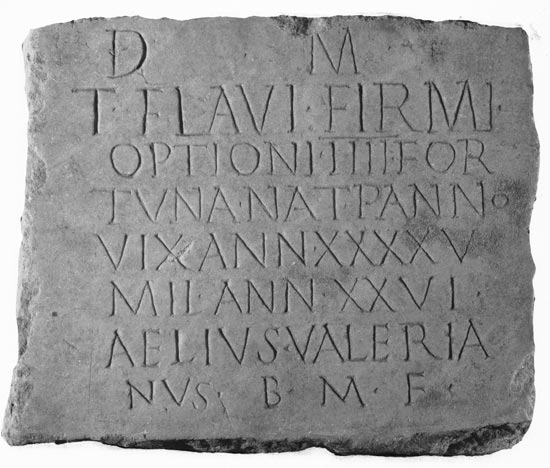
Inscription of the sailor Titus Marble, pigment Roman Period (2nd century AD) Pozzuoli, Italy. G. De Criscio collection 1899. KM 933
-

Inscription of a Chief Magistrate Marble Roman Period (Flavian) Pozzuoli, Italy. G. De Criscio collection 1899. KM 818
-
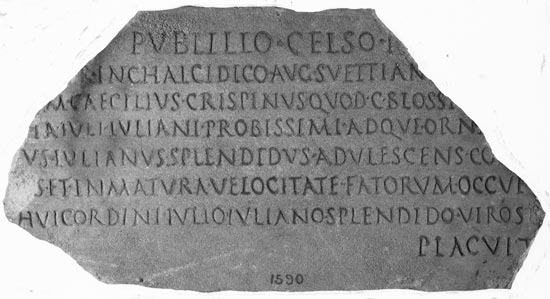
Inscription from an official decree Limestone Roman Period (AD 113) Pozzuoli, Italy. W. Dennison gift (G. De Criscio collection) 1909. KM 1590
-
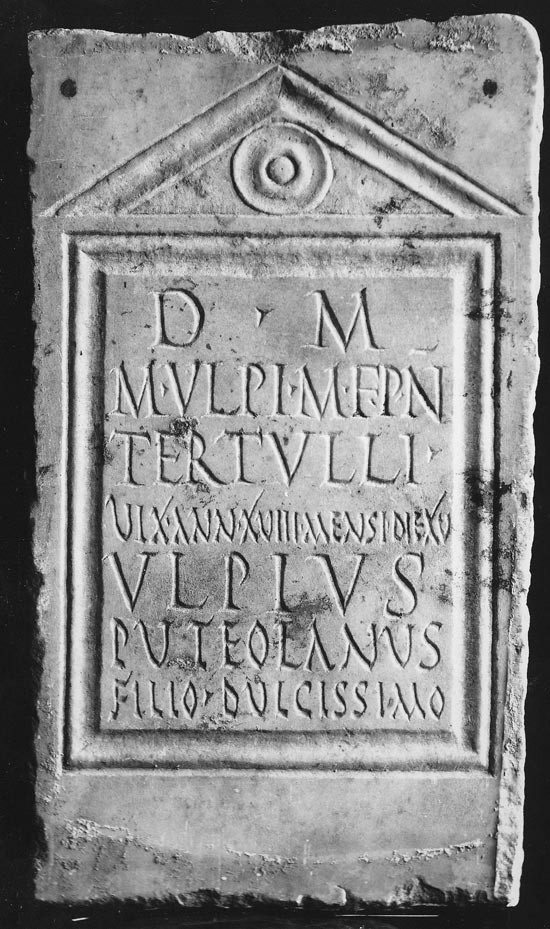
Inscription of a young man Marble Roman Period (mid-2nd century AD) Pozzuoli, Italy. G. De Criscio collection 1899. KM 1048
-
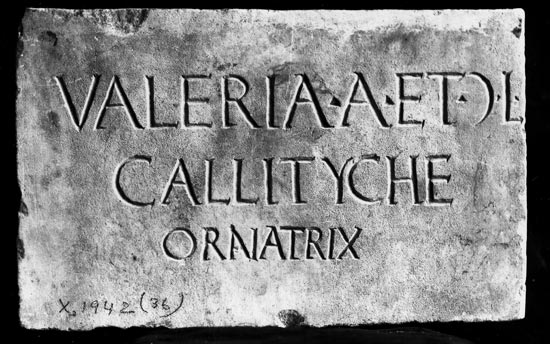
Inscription of a chamber attendant Marble, pigment Roman Period (early 1st century AD) Pozzuoli, Italy. G. De Criscio collection 1899. KM 1030
-
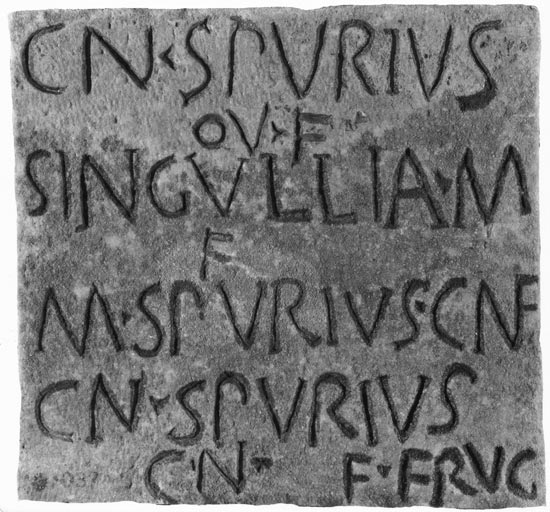
Inscription of the Spurius family Marble Roman Period (2nd century BC) Cumae, Italy. G. De Criscio collection 1899. KM 1037